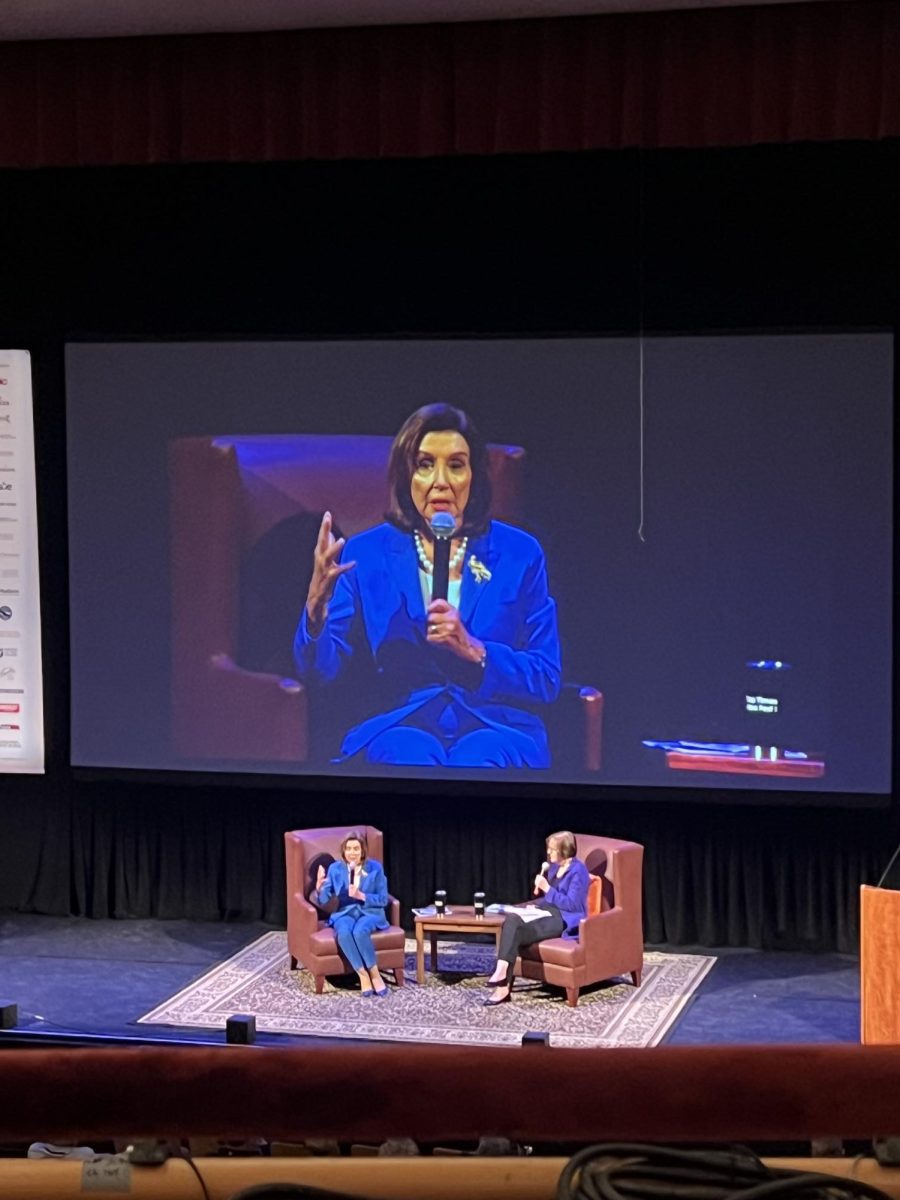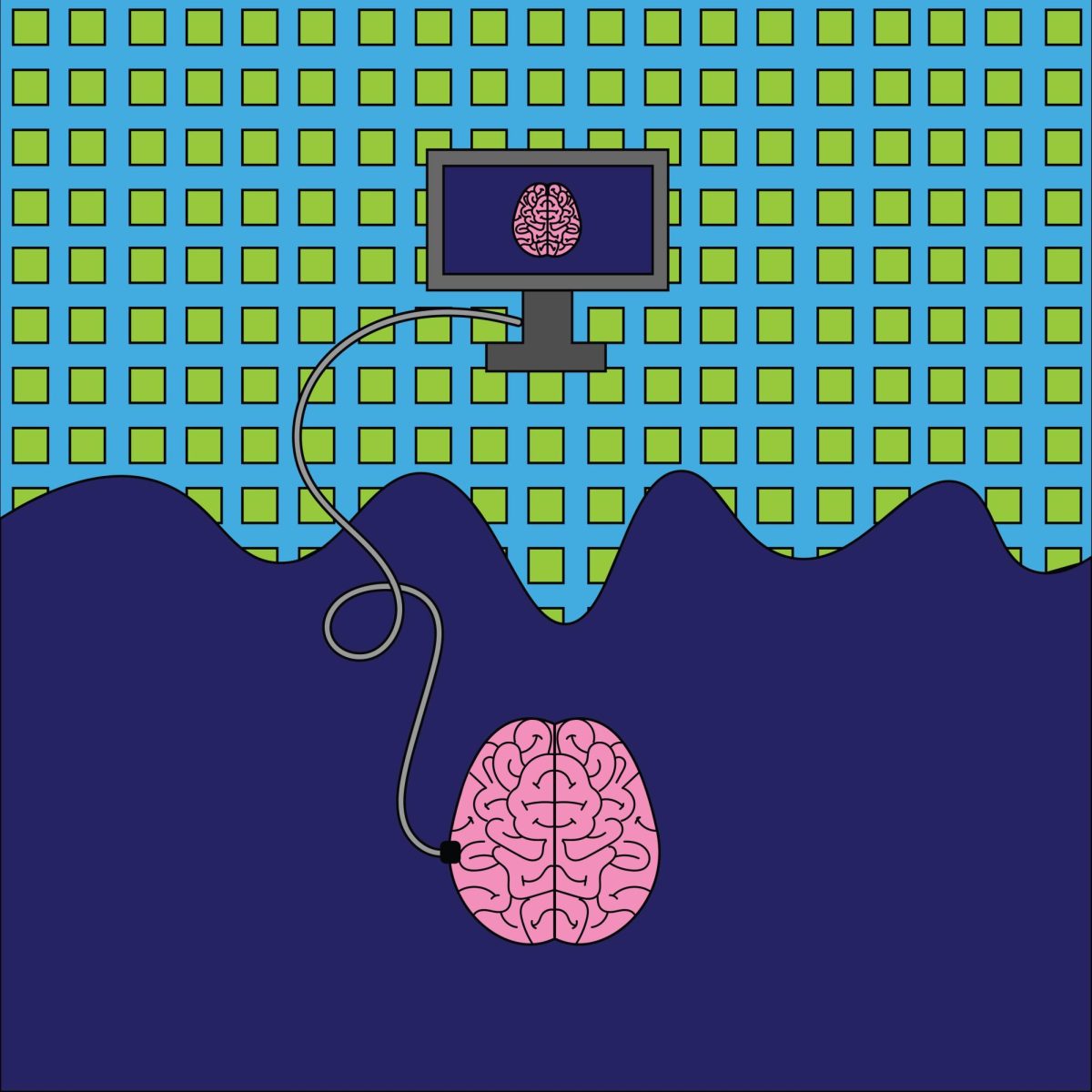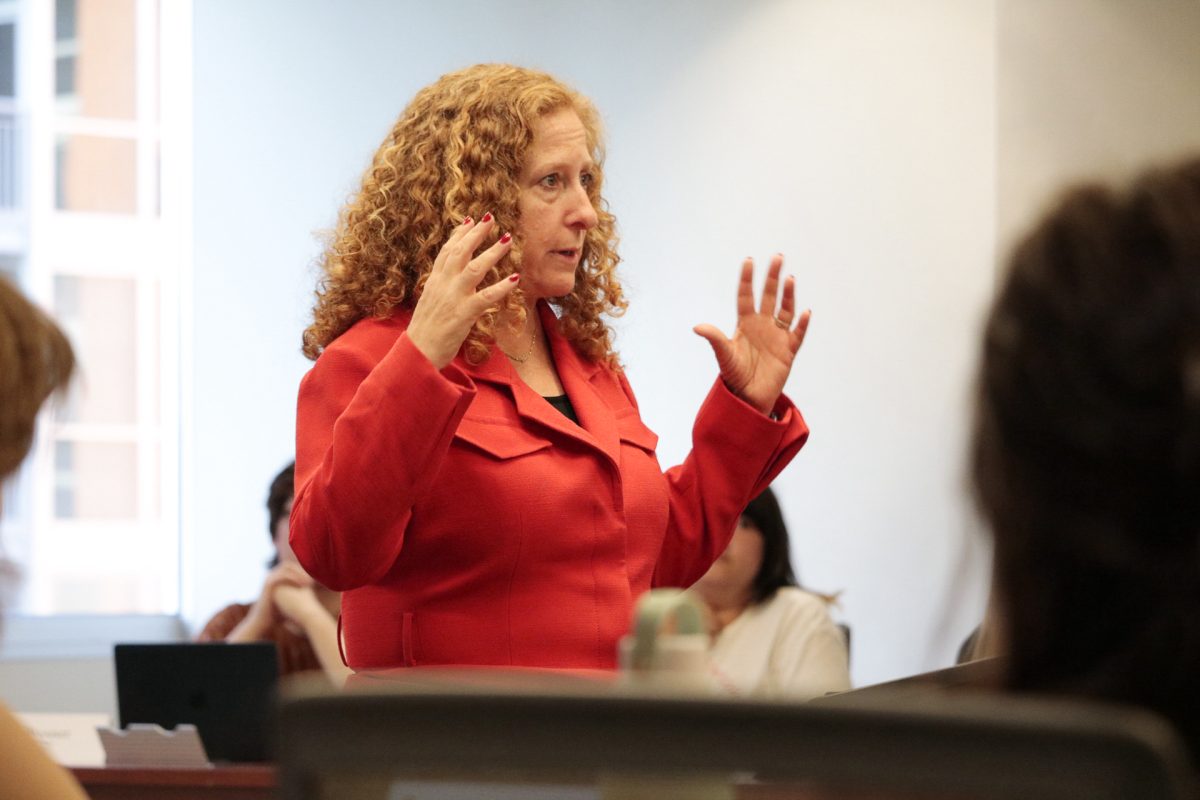
There was no pretense in Ben Manski’s voice when he said his life’s work is to start a new progressive movement in the United States.
In an interview with The Badger Herald, Manski highlighted his achievements as an activist at the University of Wisconsin and beyond, and what electing the first Green Party state representative would mean for Wisconsin and the 77th District.
Manski was more than happy to trace Wisconsin’s progressive history. He pointed to his campaign pin on his lapel, with a beacon as the “I” in “Manski.”
The beacon, he said, harkens back to the days when Wisconsin was a laboratory for democracy and said it is time for Wisconsin to be the “beacon” in the progressive movement again today.
Manski said he is “pro-democracy,” which does not seem to be an exceptional claim from any candidate.
However, he said it is one thing to be “for democracy” and another to act on those ideals. He wants to continue the progressive movement right here in Madison, where he grew up, went to school and that he now hopes to represent.
Manski’s roots in Madison education run deep. After moving from Israel when he was eight years old, he attended middle and high school in the city. He also attended UW, where he earned a sociology degree and earned his law degree at UW Law School.
Manski has never had a chance to represent constituents as an elected official, but he said he has served on elected bodies, such as the national Green Party, and is familiar with the legislative process.
If Manski is the first Green Party member elected to the state assembly, he said he would have no one to serve but his constituents.
“There are no party officials above me… I do not owe any favors,” Manski said.
It would not be about making history, Manski said, but about new opportunities that will come where there is a representative passionate about bringing progressive ideas to the Assembly.
Being a Green Party candidate with a progressive ideology running outside the typical realm of Democratic and Republican politics has posed challenges for Manski.
Ever since he was in high school, Manski has been a member of the Green Party. To switch parties and run as a Democrat would have gone against his moral fiber, he said.
Initially there were many obstacles in the way of Manski running as a third party candidate. Critics said he would not be able to receive endorsements or get on the airwaves.
He now boasts endorsements from teachers to fire fighters and has commercials running locally during “The Daily Show with Jon Stewart” and “The Colbert Report.”
Manski’s dedication to education has not gone unnoticed. The Madison Teachers, Inc. endorsed Manski over Democratic candidate Brett Hulsey because he would be the more effective person in legislative education finance, said executive director of MTI John Matthews.
The final obstacle Manski and his campaign face will arrive on election day, where voters could pass up an opportunity to elect him by voting a straight Democratic or Republican ballot.
While Manski said he supports many Wisconsin Democratic politicians, such as Rep. Tammy Baldwin, D-Wis. and gubernatorial candidate Tom Barrett, he said many other politicians undermine the student voice.
“I do not think students are taken seriously enough by policy makers at the state level. That is the loss of all Wisconsinites. [Students have] direct experience of what is happening in the university system, and honestly I think there is a generational wrong being done to young people only coming into view,” he said.
Manski’s greatest threat comes from 77th District Democratic candidate and Dane County Supervisor Brett Hulsey, who Manski said is only targeting regular voters, missing the student facet of the district.
Student outreach is important to the Green Party candidate. Manski has had a presence on campus during his campaign, from the debate held in Grainger last week to speaking at an anti-war lecture. If elected, he said he would have hearings at Madison area college campuses, including MATC and UW to both inform and hear from students.
Last week the candidates for the 77th District debated at Grainger Hall, where Manski argued public education could be funded in part by spending less on prisons.
There is a lot of talk about funding public higher education, but no one aside from Manski wants to siphon funds away from the “destructive corrections system” to fund anything, let alone higher education.
One part of this overhaul is full funding for public education, a subject near and dear to Manski. He not only works as an educator at Madison Area Technical College in sociology, but has countless relatives working in public education at all levels.
The way public education is funded must be reversed, Manski said. Instead of being forced to fit programs within a budget, a budget should be expanded to cover all programs and costs.
He acknowledged the idealistic aspect of it, but said it is possible.
“I have seen [difficult but necessary campaigns succeed] many times,” Manski said.
He traced his activist career up until his campaign as evidence of the triumph of underdog campaigns.
While some look back on their college days as a time for study and partying, maybe even a bit of travel, Manski’s years on the UW campus are a laundry list of student activist victories.
When he served on Associated Students of Madison Shared Governance Committee in the late 1990s, he and other student activists won a tuition freeze no one had thought was possible.
He and other activists also spent time in Oregon successfully fighting to preserve wilderness habitats.
More notably, he said he and other activists in the 1990s led the battle against the metallic sulfate mines in Crandon and Mole Lake, Wisconsin. Manski and other activists got a ban on mining signed into law. He said when he goes back to those areas now, people recognize him and his fight to close the mines.
Closing the mines was an issue no other politician at the time would touch, he said, except Black, whose spot in the state Assembly Manski is hoping to take over.
Manski is looking to bring victories similar to the activist successes of his youth to the Assembly, where initiatives such as reforming the corrections system would have to come after major progressive overhauls he hopes to set in motion.
Manski is, to say the least, a busy man. He helped found Liberty Tree Foundation, which does legal support for Democratic grassroots campaigns. If elected, Manski would hire someone to replace his position.
Manski said he and his wife Sarah are each other’s “wing men” for each of their projects and campaigns. The two met when he was a student activist at UW, and each of them has continued their activism into their careers.
Posipair.com is one of Sarah Manski’s creations that allows customers to trace the origins of their organic, fair trade products, Manksi said.
Manski said Posipair.com assures vendors who do adhere to green and fair trade standards get proper credit as opposed to larger corporations, who use “green washing” to make consumers think products are environmentally friendly.
While Posipair.com is mostly his wife’s project, Manski said fighting against “green washing” has played a part in his campaign for state Assembly as well.
He said his Democratic opponent Brett Hulsey was guilty of “green washing” when he lobbied for a biomass plant when it really used no biomass at all.
One of Manski’s creations that he would not pass on if elected is the Move to Amend campaign, which aims to amend the constitution after the Citizens United Supreme Court ruling earlier this year gave corporations the same rights as people in donating to political campaigns.
Much like Manski’s hope to perpetuate the progressive movement, he said Move to Amend needs roots across the country and is part of an effort that he predicts will go on for several years.
He is not afraid of waiting though, and has witnessed the power of people who care about the cause they are defending, as evidenced in his environmental victory in Oregon.
“People putting their bodies on the line can make a difference in the real way,” Manski said.













